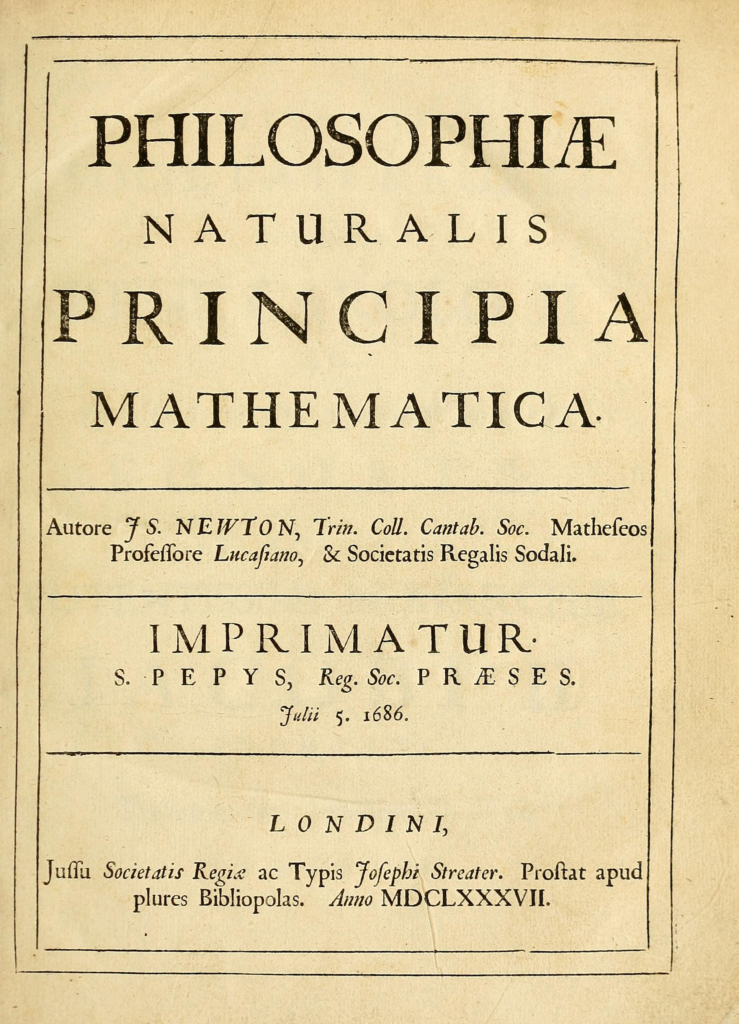Is there any better way to close Christmas dinner, than to make a hot tea and sit by the fireplace, reading our last article for the year, regarding the physicist of physicists, Isaac Newton? Maybe the normal people out there, could think of a better way to spend their time, but that’s not the case for the physicists. Physicists are a bit abnormal. You may also be wondering why out of all the possible days, we chose Christmas day to refer to the most known scientist, whereas usually we deal with overlooked scientists.

We all have heard the name Newton once or twice. Those who have a soft spot for physics, can maybe recall phrases such as: Law of universal gravitation, father of classical mechanics and so on. Please let us guide you through the dark side of this famous scientist, and by the dark side, we mean the unknown one.
Born in England in 1642, Isaac didn’t have the chance to meet his father, as he had passed away three months before Isaac was born. In fact, due to Isaac’s premature birth, the urban legend has it that as a baby he was so small he could fit in a pint glass! Unfortunately, his mother also left his side early. At the young age of three years old, his mother decided to remarry and abandoned him. As a result, Isaac grew up with his grandparents. His abandonment left him a deep scar and contributed to his difficult and unsociable personality. He even kept a book of his sins, a notebook where he was writing down his sinful thoughts, bitter and resentful, about his mother and her new husband.
As is common in the Lazarus Project, his family used to pressure him to follow a specific job description. Specifically, his mother wanted him to be a farmer, but he resisted every pressure and got accepted in the University of Cambridge. Since his school years, he was introduced to Ancient Greek and Latin literature, keeping a skeptical eye on everything and everyone. As he used to say: “Plato is my friend. Aristotle is my friend. But my best friend is truth.” The works that guided his scientific interests, were that of Kepler, Aristotle, Galileo, and Descartes, while his favourite was Euclid’s Elements.

In 1665, Newton experienced a situation very similar to what we are experiencing today. An epidemic of plague swept through London, killing about one quarter of its population. At that time, there weren’t any valuable injections to help people deal with the virus, making this a reason to appreciate today’s scientific knowledge. Due to the epidemic, Newton isolated himself in his maternal house in Woolsthorpe to protect himself, experiencing two miraculous years as he called them. At that time, he studied a department of physics, that not many people know about, optics. Through his studies, he managed to analyze through a prism the white sunlight and concluded that it is composed of the seven known color of the rainbow. This discovery went against the ruling idea that sunlight is a mix of black and white, according to Aristotle. In today’s world, this would be like an unknown scientist opposing to the general theory of relativity! Aristotle back then was something like Einstein for us, with his scientific texts being the standard for centuries. Moreover, Newton tried to prove that the change of the size of our eyes doesn’t alter the perspective of the colours we are able to see, by using needles in his own eyes. He basically made himself a test animal for his theory!
Apart from optics, during those two years he stayed in his maternal house, Newton progressed rapidly in his research about classical mechanics. Even the well-known apple tree was a real tree in his garden! His work on this field of physics, wasn’t published for at least 20 more years, due to his antisocial character that didn’t let him share his work with the public.

However, the famous “Philosophiae Naturalis Principia Mathematica” is one of the most important books of physics. It is about a three-volume work of classical mechanics with a cornerstone, the law of universal gravitation, written in Latin and published in 1687. Because the tools of today didn’t exist back then, he had to “do the math” (literally) and create the necessary mathematical concepts himself. Behold, Differential and Integral Calculus! These are the two pillars of mathematics that became the apple of discord between him and Wilhelm Leibniz.
In the next years, Newton tried to focus on his academic liabilities without success. More specifically, in 1669 he became the Lucasian Professor of mathematics in the University of Cambridge. This is one of the most prestigious academic posts that has been held by legendary names of universal science like Paul Dirac and Steven Hawking. Newton didn’t do well in this position since almost zero students were watching his lectures. The reason for this, was that Newton used to give lectures about his research interests in a level that was too high for the undergraduate students, resulting in students avoiding his courses!
In 1672 he became a Fellow of the Royal Society, after getting in touch with other great scientists of his time. Nevertheless, his interests didn’t stop with physics. At first, Newton headed for theology and wrote more than 7.500 pages, which exceeds his other scientific texts! Simultaneously, he was really interested in Alchemy, a laboratory practice that aimed to find the philosopher’s stone (the same that is referred in the books of Harry Potter), with which he would be able to transform base metals into gold and derive the elixir of life. Isaac was so serious about this practice, that he dedicated 25 years of his life studying it and he eventually wrote down one method that he believed would create the philosopher’s stone. It is believed that the mercury which he used during his research in different experiments, poisoned him at last, as the chemical analysis of his hair implies. To his poisoning, is also attributed his depression that overshadowed him since 1693. A typical example of this, is the letters he used to send to his friends blaming them that they were trying to undermine his reputation in the scientific community.
As a matter of interest, in 1689 he became a member of the Parliament, with his presence being unnoticed since the only thing he requested, was for a window in a chamber to be closed.
During his last thirty years of life, he made another turn in his professional path, and from 1701 till his death in 1727, he worked as Warden of the Royal Mint, which was placed in the Tower of London. He also left his mark while serving this position both with positive and negative sign. Due to the old coin being damaged and easy to counterfeit, Newton made sure to withdraw it and replace it with a gold more durable coin. At the same time, he hunted down counterfeiters, interrogated them and often sent them to the guillotine, even if it wasn’t his place to do so!
His love about mathematics and physics was seriously decreased while his interest was driven by other petty things like his conflict with the mathematician Leibniz, regarding Calculus. While he had completed his research in Calculus about 20 years ago, he never published any book regarding his engagement with this topic and so, 20 years later, Leibniz published his own, though identical to Newton’s, version of Calculus. Newton made sure to try anything he could, to prove to the scientific community that Leibniz relied on his own discoveries to publish his work, and he even pulled it off, due to his influence and highly respected position among the scientists. However, the ruling conception nowadays, is that both scientists ended up in the same conclusions about Calculus with a temporal difference of 20 years, without knowing each other’s contribution.
This conflict gives away some of his characteristic features, we might haven’t imagined. His reputation was something very important to him and he didn’t hesitate to use dishonest means to smite his enemies. Another example of this, is his brawl with the physicist Robert Hooke, which lead Newton to go out of his way and ruin Hooke’s only portrait in order to erase his figure from the human history. As you may understand, the fact that Queen Anne knighted him in 1705, was a personal win and a confirmation to his vanity.
Good or bad, this was Isaac Newton, and we are not here to judge him, but to highlight his work and his personality traits that usually remain unknown. The truth is, there is another reason for publishing this specific article today, on December 25, on Christmas day. On this day, 379 years ago, this great scientist that goes by the name of sir Isaac Newton, was born. Happy Newton’s Day to everyone!
“Nature and Nature’s laws lay hid in the night: God said, let Newton be and it was all light.”,
Alexander Pope
- Translation: Zoi Filiou
- Proof-reading: Dimitrios Mataragkas
